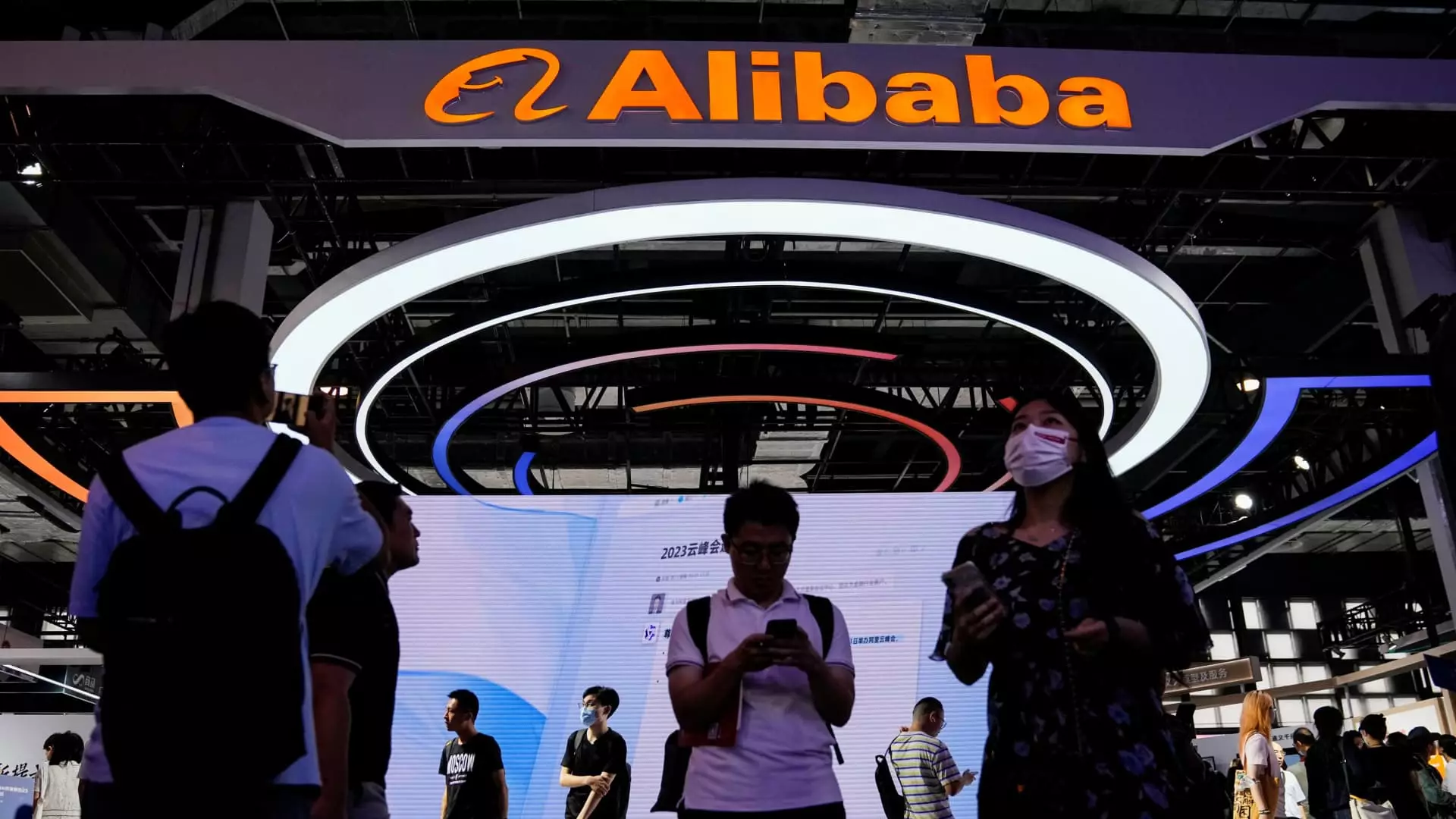In a strategic maneuver poised to reshape the landscape of artificial intelligence in China, Alibaba has announced a staggering price reduction of up to 85% for its advanced large language models (LLMs). The announcement came from the company’s cloud computing segment, Alibaba Cloud, via a post on WeChat. This significant reduction targets the Qwen-VL model, which is engineered to interpret and analyze both textual and visual data, marking a bold initiative to enhance accessibility and stimulate industry use.
Despite the scale of these price cuts, Alibaba’s stock barely budged, with a modest closing increase of 0.5% on the last trading day of the year in Hong Kong. This response—or lack thereof—speaks volumes about investor sentiment amidst heavy competition and aggressive pricing strategies in the AI space. Investors are likely becoming accustomed to such disruptive strategies, recognizing the foundational changes occurring within technology firms and the sustained push toward artificial intelligence as a core business offering.
Alibaba’s pricing strategy cannot be examined in isolation. The competitive landscape among China’s leading technology firms has reached unprecedented levels, dictated by both urgency and innovation. Rival companies such as Tencent, Baidu, JD.com, Huawei, and ByteDance, the parent company of TikTok, have also introduced their own LLMs over the past 18 months. Each of these firms aims to harness the booming interest in AI technologies, seeking to capture market share in a sector that promises exponential growth.
The rush to dominate the AI model market indicates a collective acknowledgment among these tech giants of the sector’s potential to define the future of not only their businesses but also the broader tech industry. Alibaba’s price cuts, therefore, signify a tactical response to maintain relevance and competitiveness. It’s important to understand that the drive to lower prices is not just about attracting initial interest but also creating long-term commitment among enterprise users.
This isn’t the first time Alibaba has opted for drastic price reductions to encourage AI adoption. Earlier in February, Alibaba unveiled cuts of up to 55% across several of its cloud offerings. In another notable instance in May, the company slashed prices of its Qwen AI model by as much as a staggering 97%. Such bold pricing tactics are reflective of the company’s understanding of market dynamics and consumer behavior, especially in a sector characterized by rapid technological advancements.
These pricing shifts convey a dual message: a commitment to making AI technologies more affordable for businesses while simultaneously challenging competitors to respond with their own pricing strategies. Alibaba appears to be betting on the potential for large-scale adoption of their products within the enterprise segment, a crucial segment as organizations increasingly seek to leverage AI capabilities.
The Enterprise Focus of Alibaba’s AI Models
Interestingly, while other companies have released consumer-facing AI applications, such as chatbots like OpenAI’s widely recognized ChatGPT, Alibaba has strategically chosen to channel its focus primarily on enterprise solutions. This redirection underscores a specific market strategy, where Alibaba is looking to capitalize on business deployments rather than individual consumer engagement. As of May, the Qwen models have reportedly integrated into over 90,000 enterprise applications, indicating that businesses trust Alibaba’s models for critical operational uses.
Focusing on enterprise applications allows Alibaba to establish deeper partnerships and more sustainable revenue streams. By catering to organizations rather than individual consumers, Alibaba can create tailored solutions that better meet business needs, setting the stage for long-term client commitments.
Alibaba’s recent price reductions in its large language models exemplify a significant strategic gambit amid an intensely competitive AI market. This bold move is not merely a tactic for immediate gains but a signal of the company’s determined ambition to be a front-runner in the AI ecosystem. As the tech industry in China continues to evolve, only time will tell if these aggressive pricing strategies capture a greater share of the rapidly expanding AI market, fostering innovation, collaboration, and ultimately reshaping the way businesses operate in an increasingly data-driven world.

